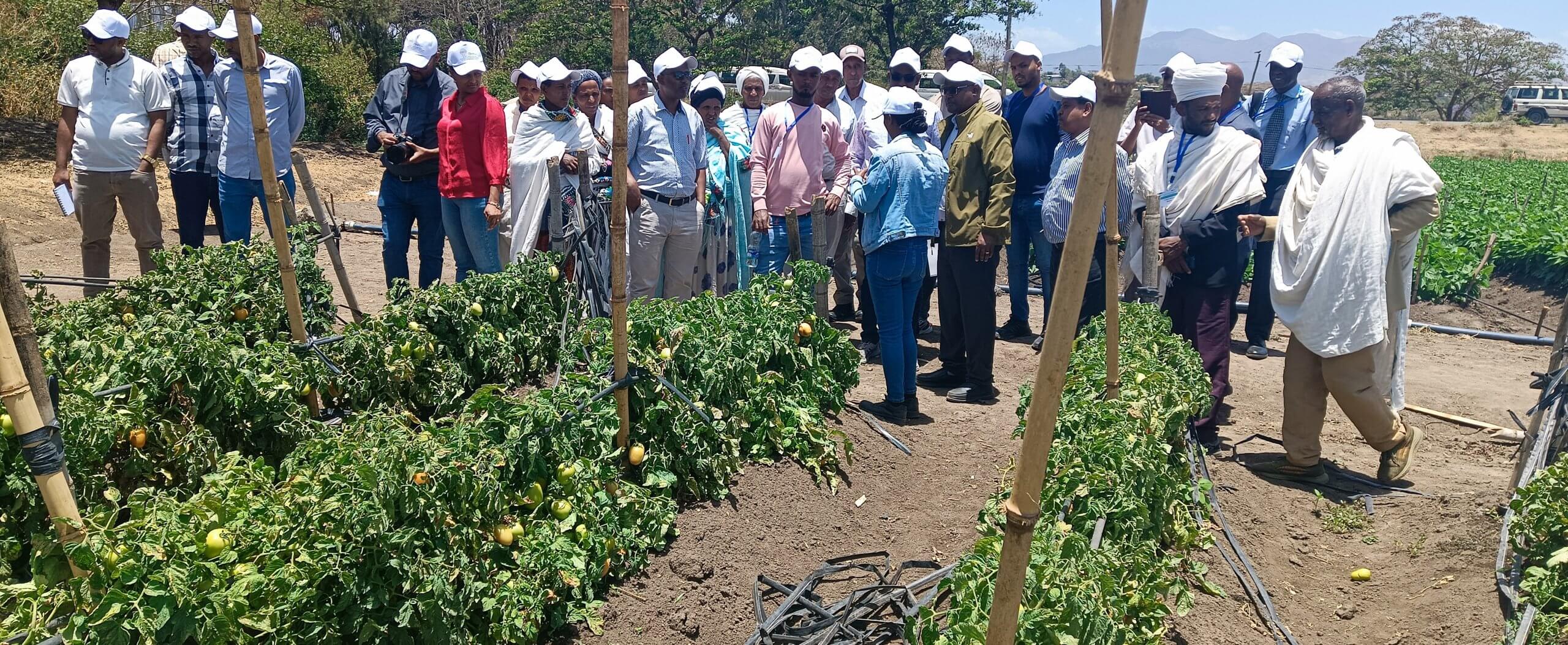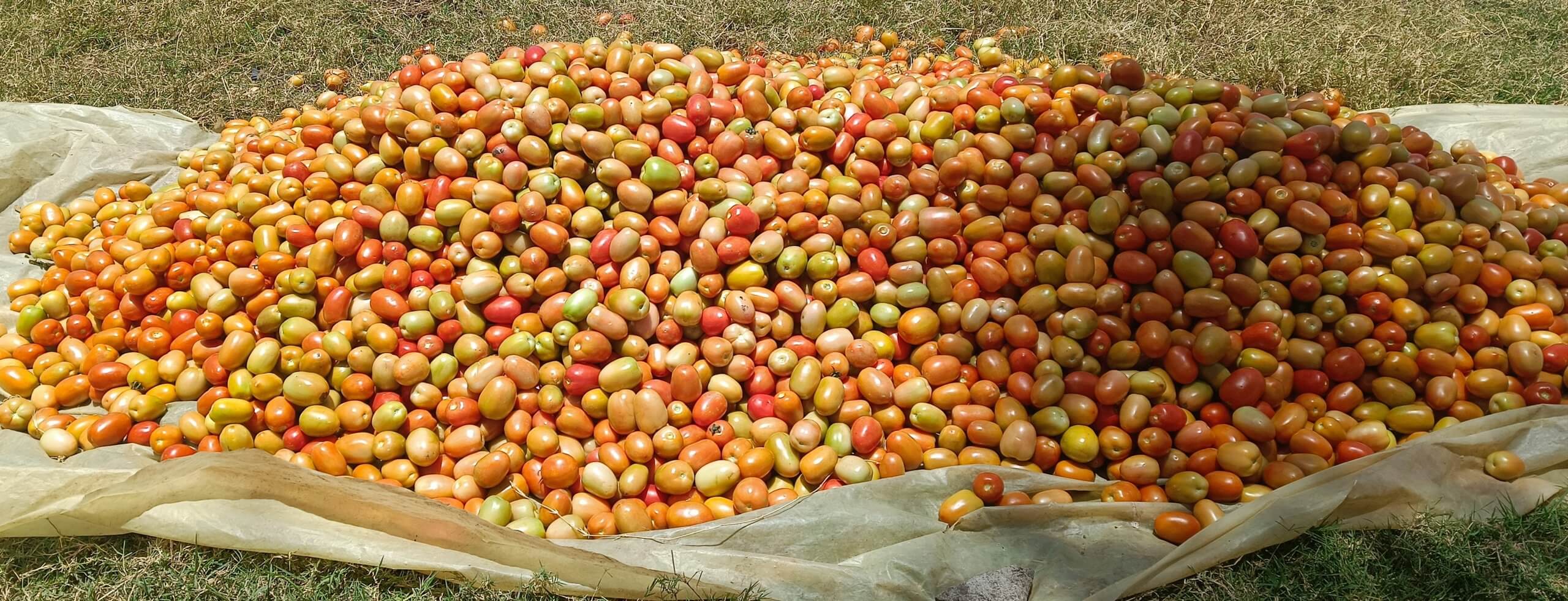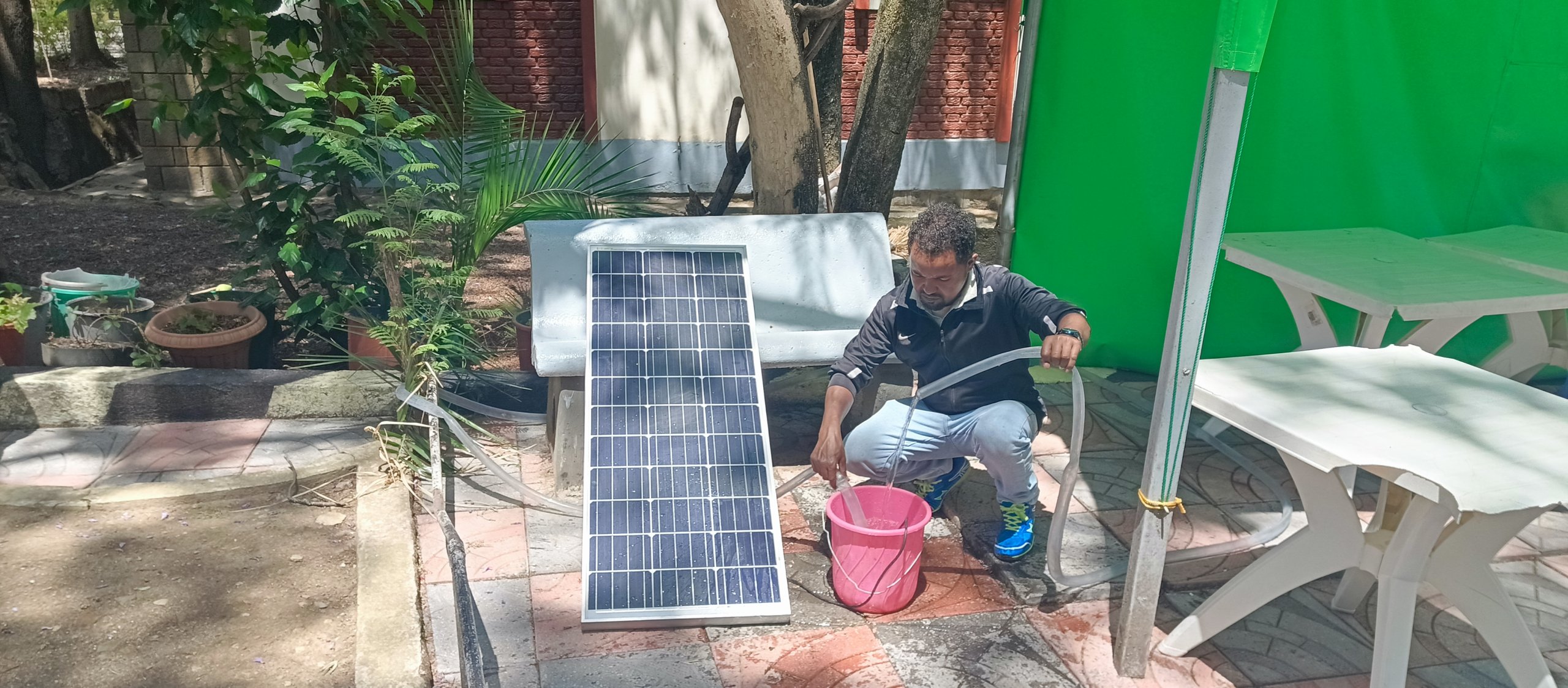ASARECA, CIHEAM BARI, Land Resources Centre boost Ethiopian farmers capacity to sustain Water and Land productivity
BY BEN MOSES ILAKUT
DEBRE ZEIT, ETHIOPIA—The Association for Strengthening Agricultural Research in Eastern and Centra Africa (ASARECA), the International Centre for Advanced Mediterranean Agronomic Studies-Institute of Bari (CIHEAM Bari) and the Italian Agency for Development Corporation (AICS) have joined Ethiopian partners, Water and Land Resource Centre (WLRC), Addis Ababa University, in a show of support in the Stakeholder Capacity Building Workshop on Best Management Practices (BMPs) and Innovation Roadshow Event in Debre Zeit, Ethiopia.
The roadshow is hosted by Bishofto Agricultural Research Centre (BARC) and aims at disseminating knowledge and skills about BMPs and innovations acquired in various TOT training sessions as well as undertaking participatory identification and selection of suitable scenarios for upscaling and out-scaling the BMPs and innovations in Ethiopia. During the roadshow, farmers were given 15 kits of fertilizer developed by one of the private sector start-ups for demonstration on their fields.
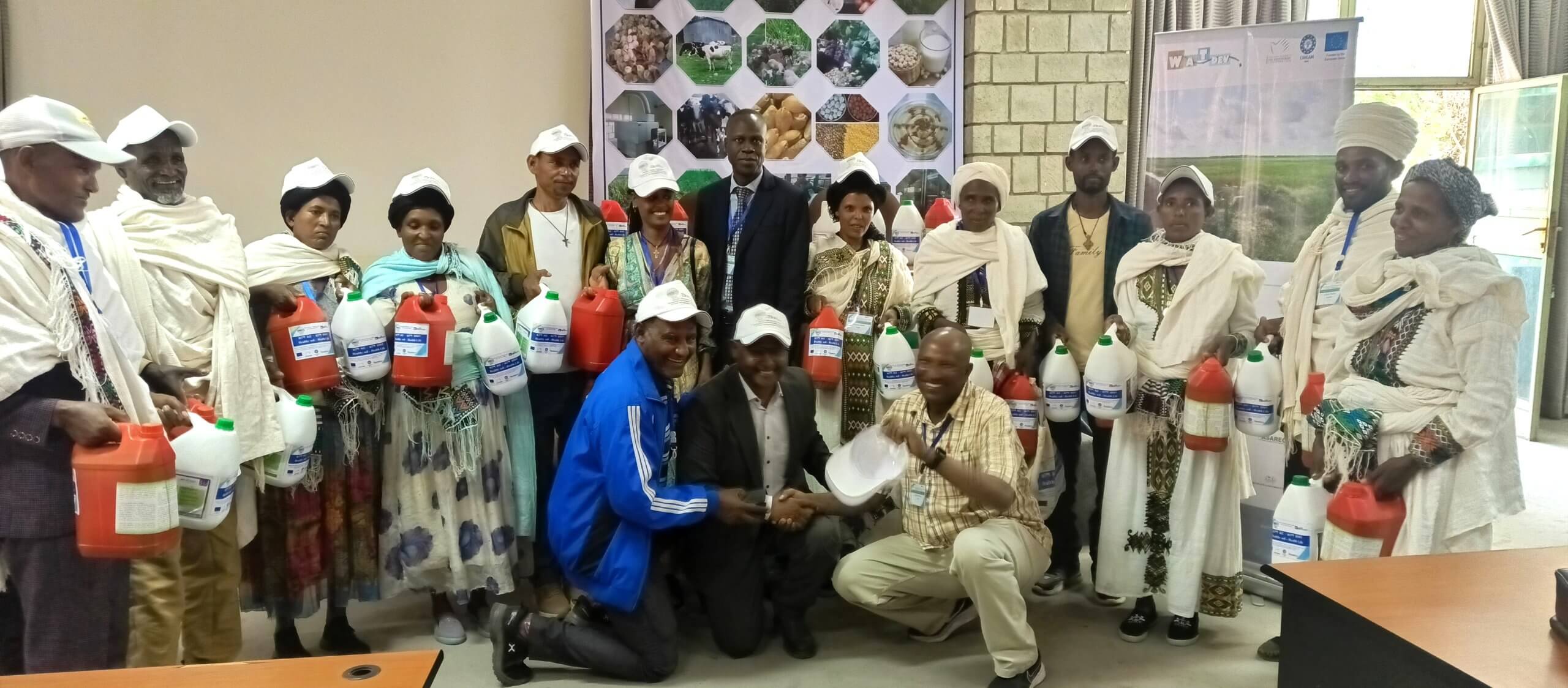
Handing over the kits, ASARECA Acting Head of Programmes, Moses Odeke alongside Dr. Tena Alamirew, the Deputy Director General Water and Land Resources Centre noted that the farmers were selected to pilot the bio fertilizer from the private sector partners as part of the research process. “We expect you to provide us feedback on the performance of the fertilizer and share your experience with other farmers and the private sector as well,” Mr. Odeke explained to the farmers. “You are therefore researchers yourselves. Your feedback will enable the innovators to improve on the products.”
This activity under the Climate Smart Water Management and Sustainable Development for Food and Agriculture in East Africa (WATDEV) Project is funded by the European Commission and the Italian Government through Italian Agency for International Cooperation (IACS), under the DESIRA Initiative, thematic area on Water, Food and Energy nexus.
.
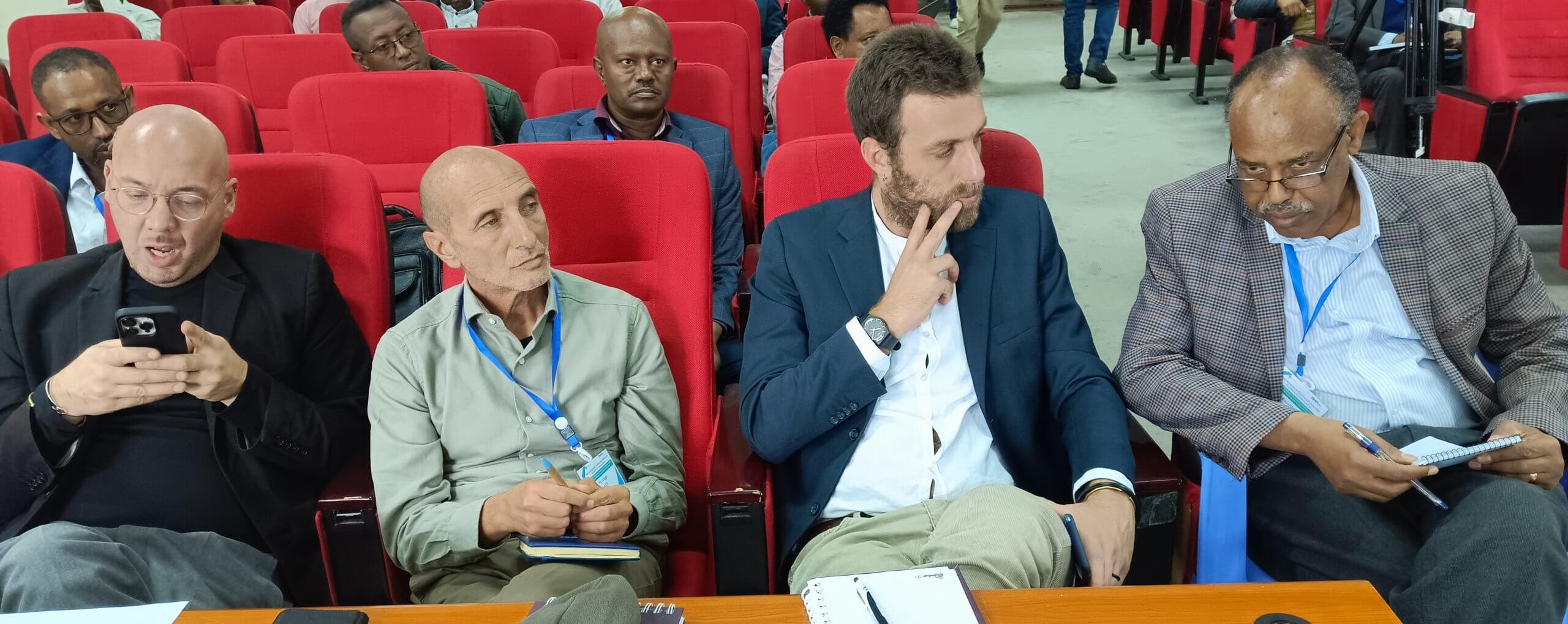
CIHEAM- Bari upbeat with participatory approach
Addressing participants, the project leadership at CHEAM Bari, Italy displayed excitement over the integration of multi-actors, especially farmers in the research process for sustainable water management. In opening remarks, the Project Manager and Scientific Coordinator of WATDEV CIHEAM Bari, Dr. Gaetano Ladisa, noted that farmers add great value in sharing the WATDEV Project experience. “The initiative aims to provide participants with a comprehensive understanding of Best Management Practices and Innovations while engaging the private sector and entrepreneurs in supporting farmers in their effective implementation,” he said. “Our goal is to provide farmers the much-needed knowledge, skills, and technologies to improve and promote sustainable development in their communities.”
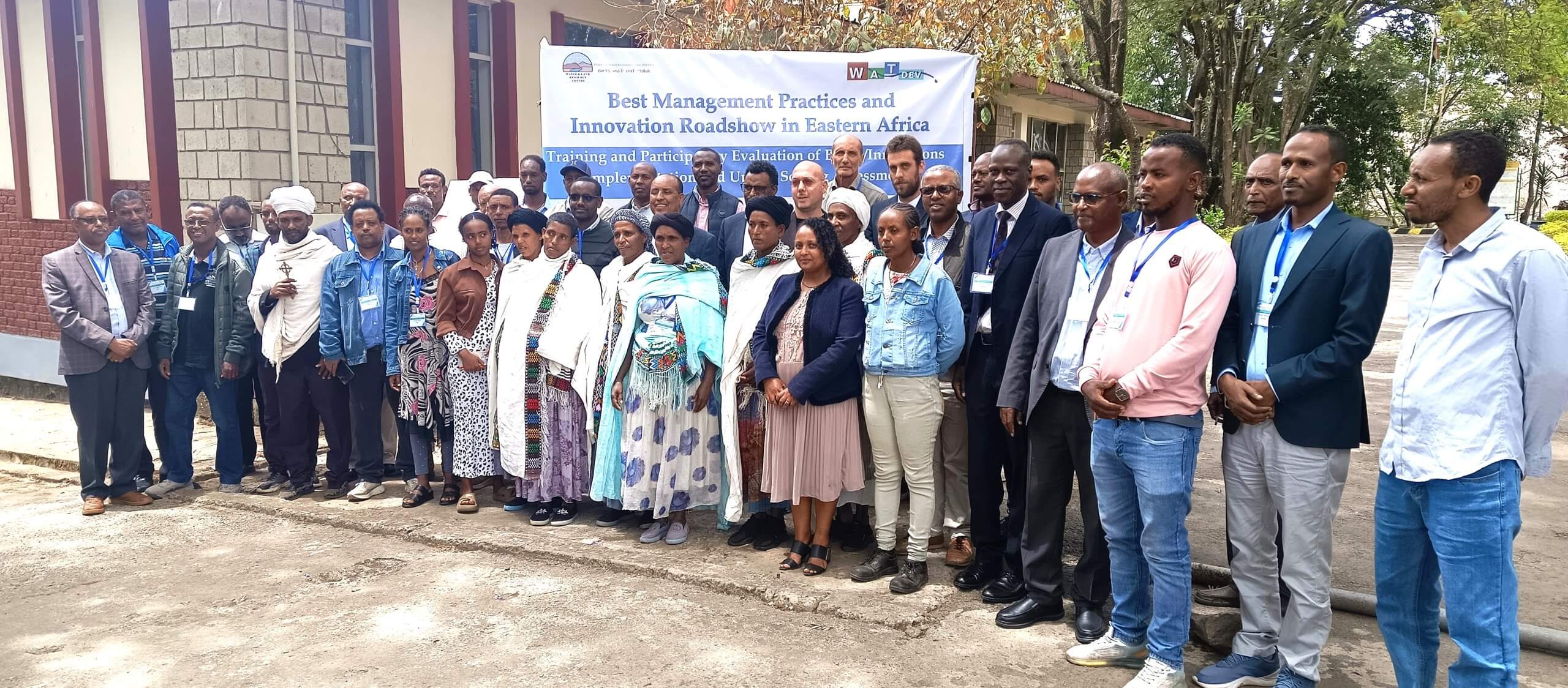
Dr. Gaetano noted that the WATDEV project adopted a multi-actor multi-scale participatory approach to improve local community resilience to climate change. “Through innovative research, modelling and capacity building, the project integrates innovative ongoing research with traditional and indigenous knowledge ensuring a holistic and practical approach to sustainability,” he said. “The activity today, aligns with the CIHEAM Bari, philosophy of bridging the space between farmers, researchers and decision makers there-by contributing to the global agricultural sector.”
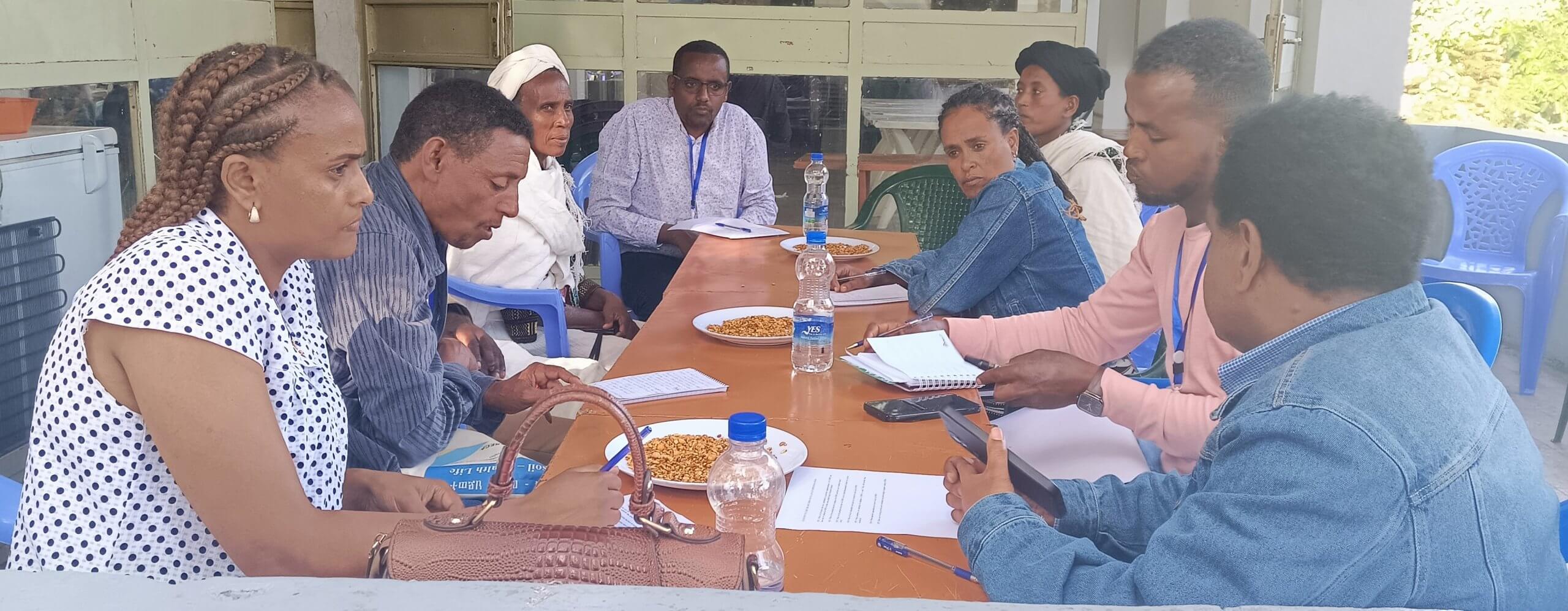
ASARECA pledges to leverage partnerships that benefit farmers
In the WATDEV Project, one of ASARECA’s key contributions is mobilizing and convening human, technical and financial resources, and collaborative work for the ultimate benefit of last mile stakeholders, mainly the farmers. ASARECA Executive Director, Dr. Sylvester Dickson Baguma, in an opening note delivered on his behalf by Ag. Head of Programmes, Moses Odeke, pledged ASARECA’s commitment to work together with WLRC to ensure that the project is successfully implemented to deliver the intended outputs, outcomes and impacts. He thanked the EU and International Agency for Italian Cooperation (IACs) for supporting and funding the WATDEV program.

Dr. Baguma noted that the Training and Innovation Exhibition in Debre Zeit was all about sharing the immense potential of water and soil Best Management Practices in transforming livelihoods sustainably. “Showcasing tested and piloted innovations serves to impart knowledge and skills to the farmers, extension agents, local researchers and the community in Debre Zeit, Koga and other surrounding areas,” he noted. “We do this to scale out BMPs selected such as agroforestry, soil health through crop rotation, composting and water management through water Users Associations to those who have not known about them.”

The overall objective of the event was to disseminate knowledge and skills about BMPs, and innovations acquired by Trainers of Trainers (ToTs) from WLRC during the 1st & 2nd TOTs held in Bari, Italy, as well as undertake participatory identification and selection of suitable scenarios for scaling the BMPs and innovations in Ethiopia.
Specific Objectives
The specific objectives of the training were to: Enhance knowledge and skills in sustainable agricultural practices; undertake participatory selection of scenarios for out scaling the BMPs and Innovations; gather stakeholders’ perceptions about BMPs implementation scenarios; promote innovation through collaboration with agricultural start-ups; and create a platform for networking between farmers, innovators and other stakeholders.
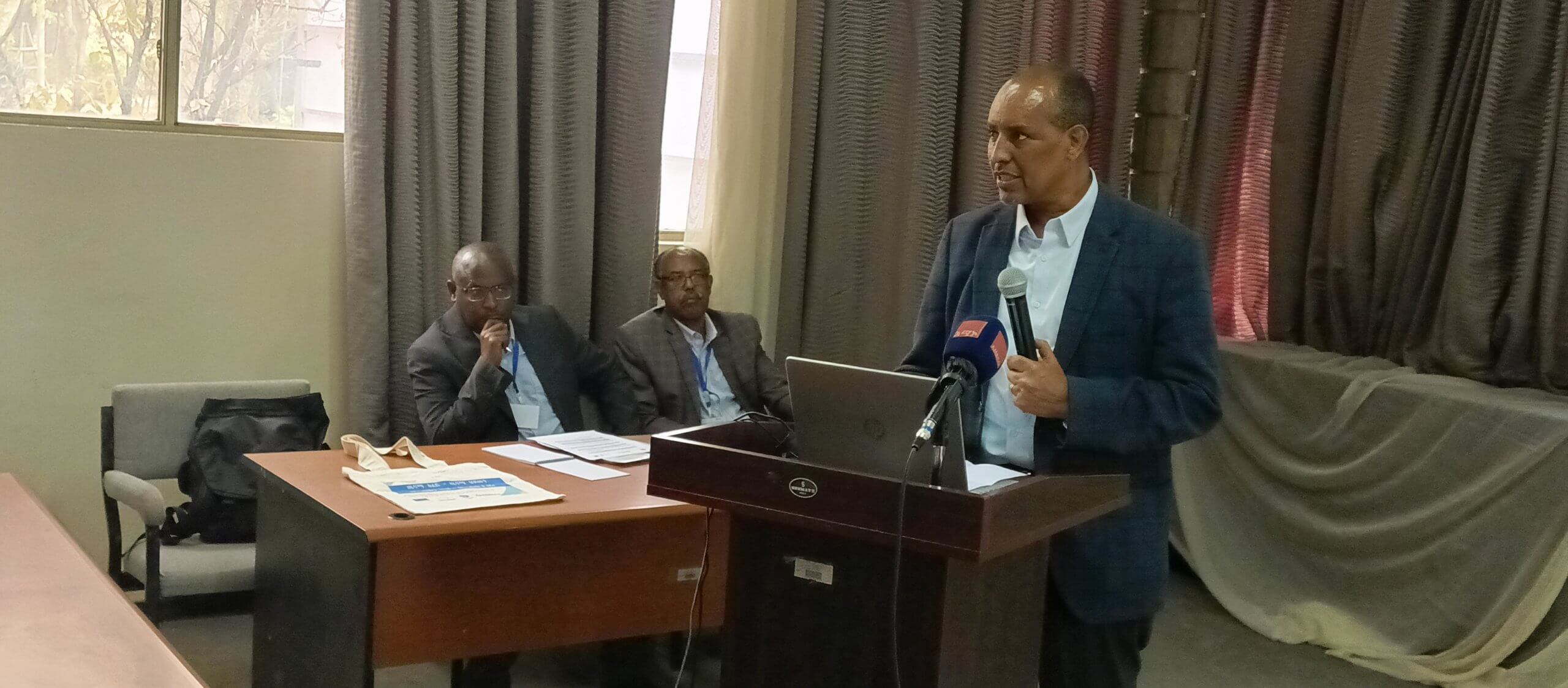
Land Resources Centre wants tested innovations adopted
Speaking at the roadshow event, the Director General Water Land Resources Centre (WLRC), Dr, Gete Zeleke, said WLRC is deeply committed to ensuring sustainable and effective utilization of land and water resources for the benefit of all. WLRC has established learning watersheds where sustainable land and water management practices are systematically implemented through community participation with local communities and stakeholders. These practices are designed to rehabilitate degraded land, reduce soil erosion, enhance land and water productivity, thereby improving ecosystem services and livelihoods. “We are passing on these skills to farmers under the WATDEV Project and we have so far witnessed firsthand the positive impacts of these efforts, seeing the restoration of barren hillside and thereby ecosystem services, enhanced farmland productivity, and improved livelihoods. This success is a direct result of our collaborative work with farmers, extension agents, local authorities, innovators, the Government, local, regional, and global partners,” Dr. Gete said.
Ethiopian NARI keen on providing additional expertise to WATDEV
On his part, the Director, Bishoftu Agricultural Research Centre, Dr. Dagne Mojo welcomed the WATDEV Project to take advantage of the diverse expertise that the centre offers in water and soil management. “Bishoftu Agricultural Research Centre conducts research and farmer outreach in Soil and Water Management Research Programs. We have research programs in soil and water research, including vertisoils management, inorganic and biological soil fertility management, irrigation and water management and we conduct extensive work in land and water conservation and research both at the center and on farmers’ fields,” he stated. “We are willing to provide our expertise to more framers through the WADEV initiative.”
Bishoftu Agricultural Research Center (BARC) is one of the 23 centers of the Ethiopian Institute of Agricultural Research (EIAR). The center was established 72 years ago as a satellite research station. It conducts a research portfolio covering crops, teff, durum wheat, cool season food, crop protection, agronomy, livestock, agricultural economics, agricultural extension, food science and nutrition, climate and geospatial research and seed sciences.
.
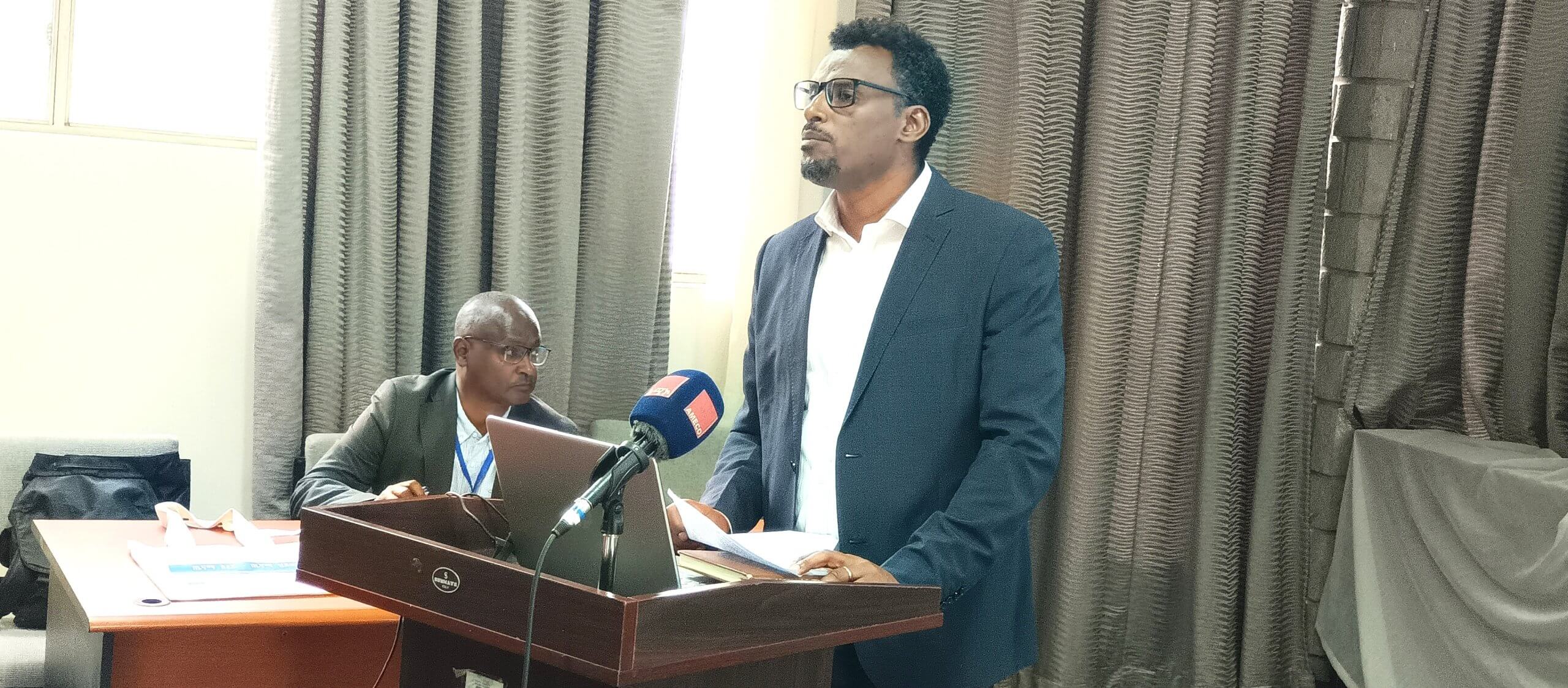
Benchmarking existing technologies
On the second day of the Roadshow, participants including farmers appreciated demonstrations of technologies available from the Private sector including solar powered water systems, manual water pumps for domestic use and soil fertility management practices, among others. They also toured Ethio Veg Farm where they appreciated modern technologies and Best Practices on water and soil use efficiency. Ethio Veg farm is one of Ethiopia’s elite model farmers with top of the range facilities and state of the art crop, soil, and water management practices. The innovations showcased are established on 8-acre piece of land leased to the company by EIAR for large scale production of red wave onions, tomatoes, cabbages, peas, faba beans and other high value crops for domestic and export market. The farm is an ideal place to motivate the farmers to recognize that framing pays.
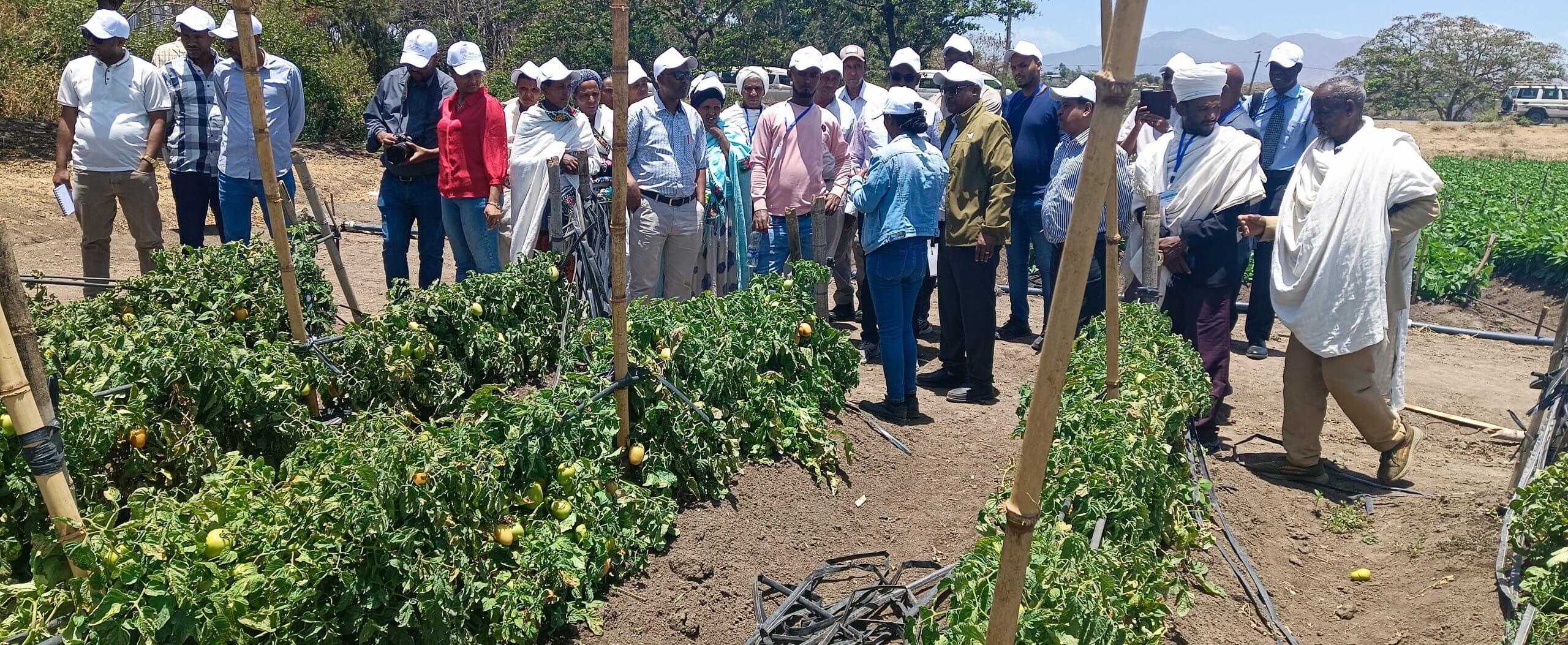
The farmers also visited the Ethiopia Evangelical Church Development and Social Services Commission which practices integrated aquaculture and soil management through application of liquid fertilizer. Farmers were taken through a step-by-step process on how to produce liquid fertilizer before applying it to the crops. Farmers also visited a vermi-compost production facility operated by BARC where they were trained on how to produce vermi-compost locally in their farms.
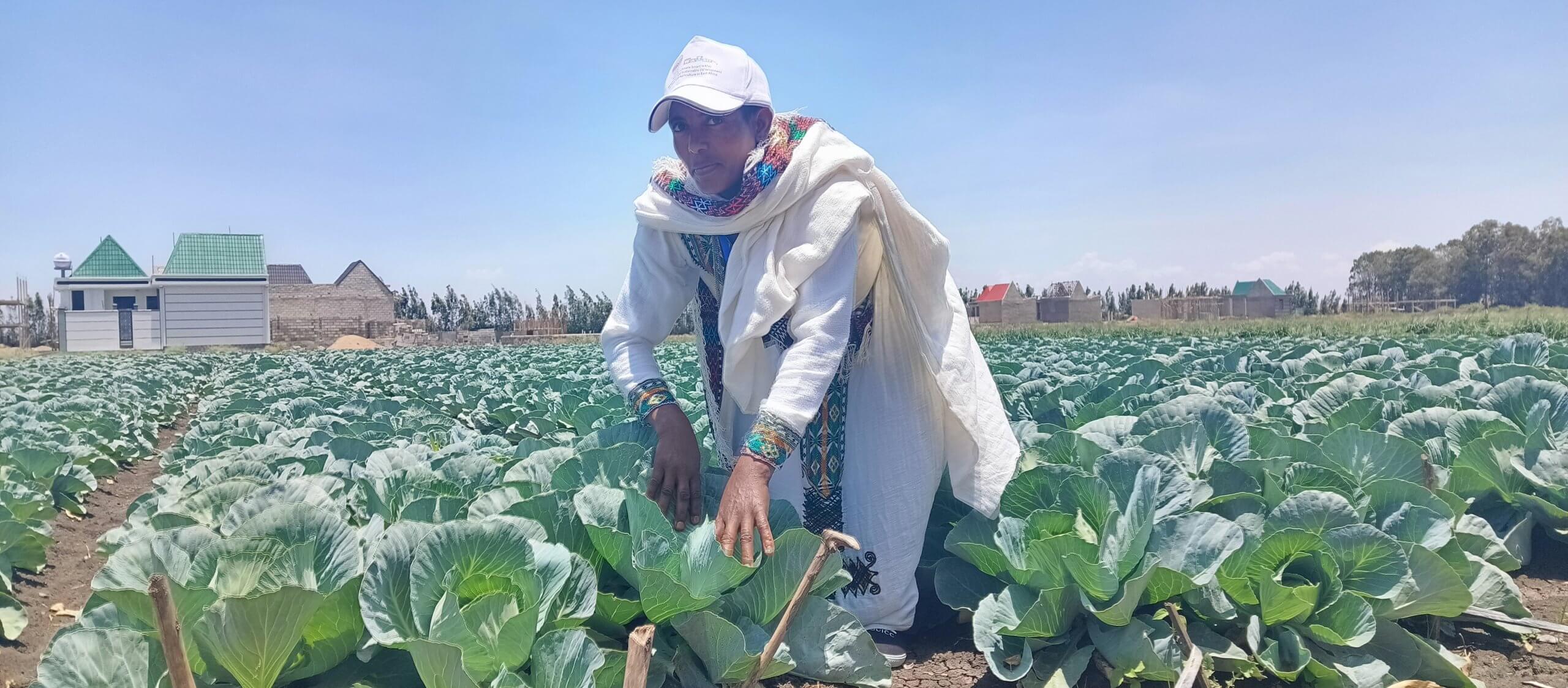
Context of the WATDEV Project
Agriculture is the main engine of economic growth in African economies contributing as much as 60% of the GDP in some countries as it is a major source of employment and livelihoods for millions of people. It accounts for 70% of the water withdrawals globally. Sustainable water use and land management is critical for the sector to continue contributing to the economies and livelihoods.
East and Northern Africa suffer from chronic water scarcity which is aggravated by climate change which calls development and implement appropriate ways for managing water resource, such as the river Nile Basin and Koga River Basin catchment, which support millions of people. The population in Koga region in Ethiopia is expected to double in the next few decades, highlighting the need to sustainably manage the soil and water resources in the region and mitigate against impacts of climate change.
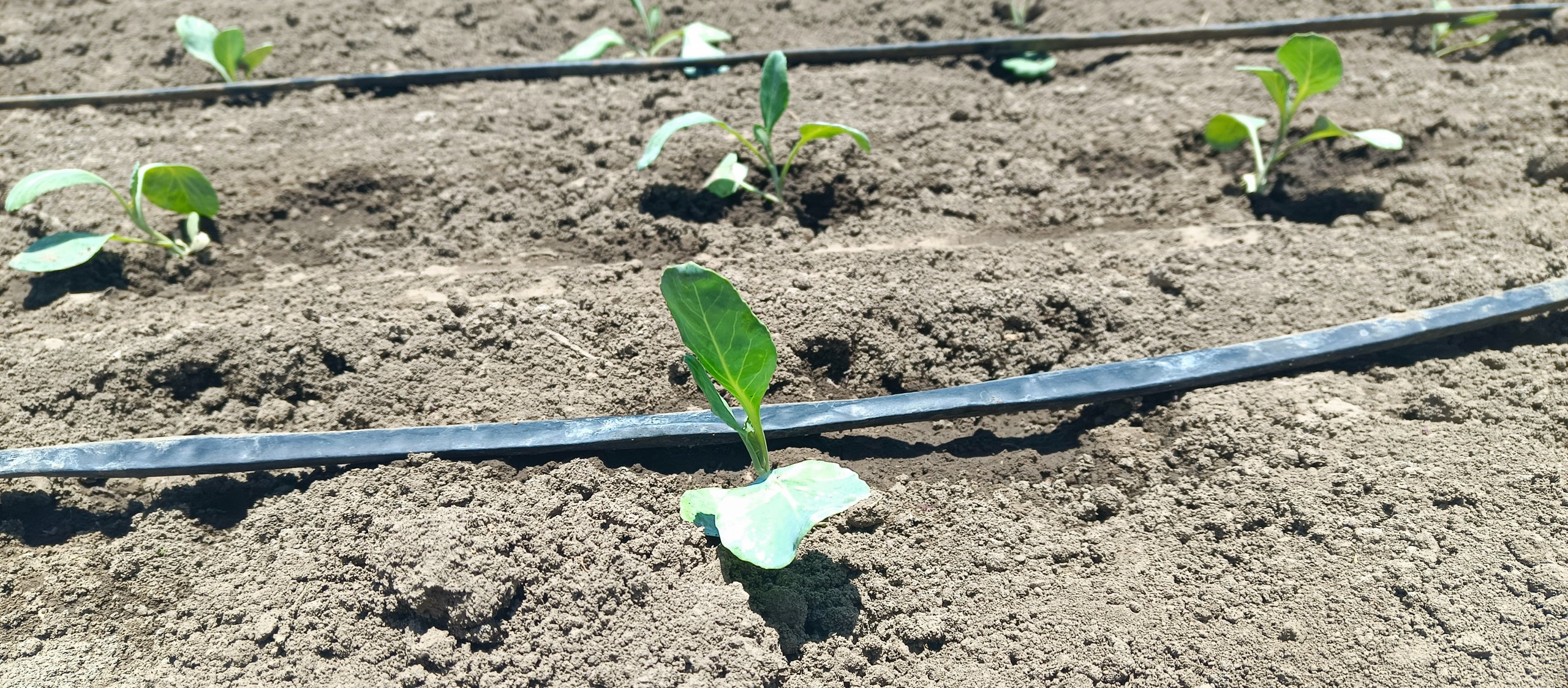
Through the WATDEV project, partners from Europe, Italy, ASARECA, Ethiopia, Kenya, Egypt and Sudan are making a difference through interventions such as: Capacity building of stakeholders in all the relevant areas, modelling the implementation of the BMPs by using future scenarios and making interventions that are anticipated to match the scenarios; developing a tool box of solutions based on the modelling and research on the BMPs and their implementation; employing targeted interventions to address current practices that could aggravate future situations, upscaling and out-scaling scenarios and practices to scope.
About areas of intervention
The Climate Smart Water Management and Sustainable Development for Food and Agriculture in North-East Africa (WATDEV) Project is implemented by CIHEAM-BARI, Italy in collaboration with European partners (SKYKE, CNR and ISRIC), and African partners to promote innovations at the water energy and agriculture nexus to enhance economic development and resilience to climate change in Kenya, Ethiopia, Sudan and Egypt.
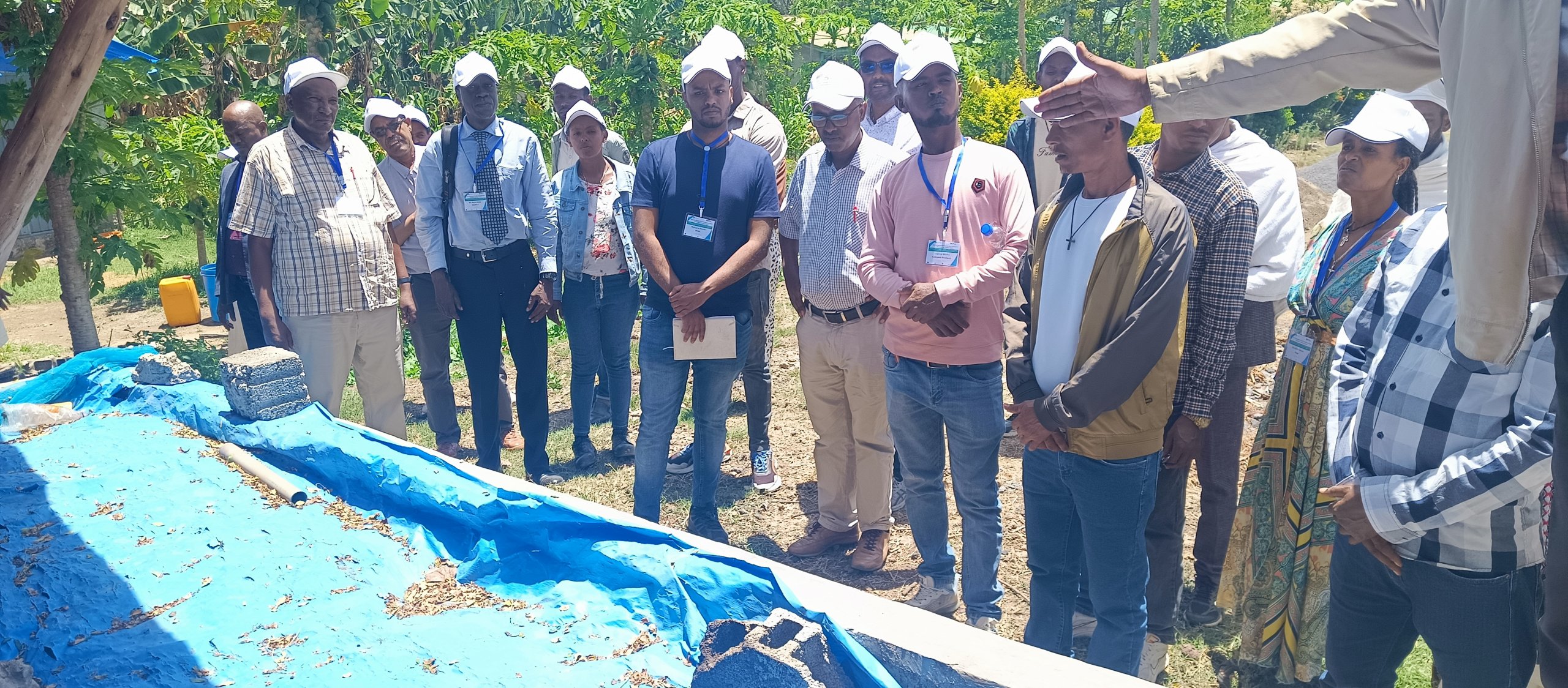
In Ethiopia, the Project is implemented in partnership with the Water and Land Resource Centre, Addis Ababa University; in Kenya, it is implemented in collaboration with the Kenya Agriculture and Livestock Research Organization (KALRO) and in Sudan, it is implemented in collaboration with the Water Research Council. It brings together academia, policy, and private sector to create an environment conducive to agricultural innovation and modern transformation.
Specific locations
Ethiopia: Koga Irrigation System (KIS) located some 40 km from Bahri Dar town in the Abbay Basin. KIS is an established and well performing irrigation scheme in Ethiopia.
Ude Kebele groundwater irrigation scheme under the Adaa Becho Groundwater Irrigation system (ABGIS) in the Awash Basin is located in Ada’a Woreda some 50 km from Addis Ababa.
Egypt: Belbies district is located 20 km south of El Zagazig city and bounded to the east by Abu Hammad, to the west by Minia El Kammh and in the south by the Tenth of Ramadan City districts.
Sudan: The Gezira Scheme is located between the Blue Nile and the White Nile Rivers within a semi-arid agro-climatic zone.
Kenya: Lower Tana is located in Tana River County. This intervention area is the region watered by the lower part of Tana River.
Deep understanding emerges in Ethiopia
Dr. Tena Alamirew, Deputy Director General Water Land Resources Centre noted that the project in Ethiopia has been developing a deeper understanding of how water and agricultural resources are managed including the impact of climate change, creating innovative research methods, models, and approaches to improve water management, building the capacity of individuals and institutions involved in managing water resources to ensure long-term sustainability, encouraging collaboration between researchers, policymakers, and the private sector to foster innovation, presentation selected BMPs and start-ups invited to the roadshow, undertaking participatory evaluation of the BMPs up and out scaling strategies in groups.
According to Dr. Tena, the training of Trainers Courses on Water, Soil, and Crop Management in Climate-Smart Agriculture have so far covered areas such as Principles of Best Management Practices and Innovations, Innovative Technologies in Agriculture and Water Management, and Networking and International Cooperation Strategies.

